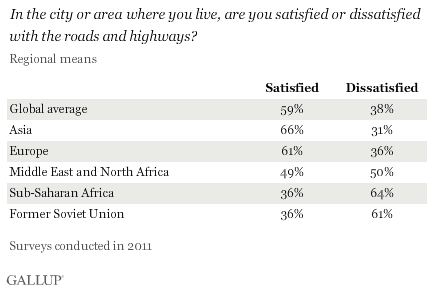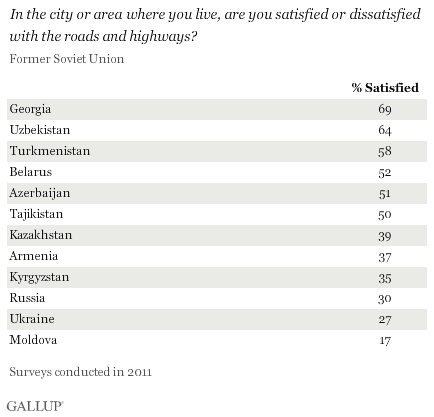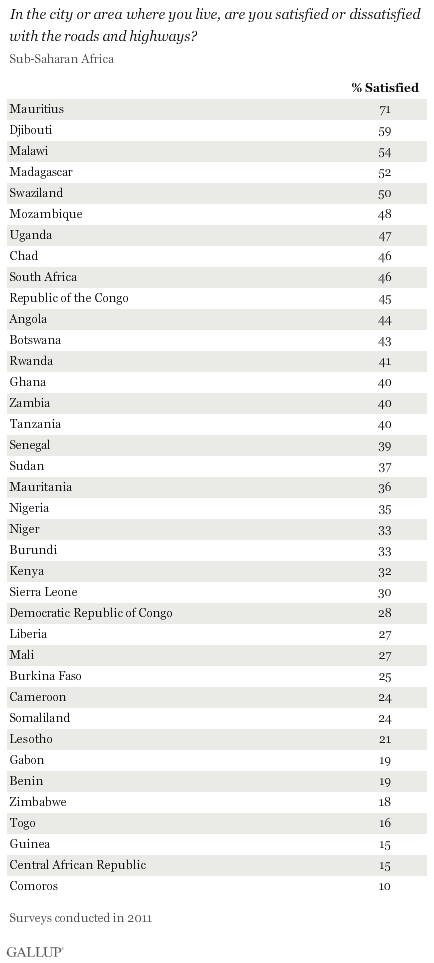WASHINGTON, D.C. -- The majority of the world's adults (59%) are satisfied with their local roads and highways, according to Gallup surveys conducted in 148 countries and areas in 2011. Satisfaction is highest in Asia (66%) and lowest in sub-Saharan Africa (36%) and the former Soviet Union (36%) -- two regions where road infrastructure is poor, if it exists at all.

Although the majority of adults worldwide are satisfied with the roads where they live, the World Health Organization (WHO) and United Nations find that road defects, vehicle defects, and human factors contribute to millions of injuries worldwide each year.
In the former Soviet Union, where slightly more than one-third of residents are satisfied with regional roads and highways, road travel is particularly risky. Poor road conditions, unsafe driving behaviors, and ineffective enforcement of laws and regulations are all cited as reasons for the high number of traffic accident-related deaths. Pedestrians are often at greatest risk. Satisfaction with regional roads and highways is lowest in Moldova (17%), where roads aren't sufficiently maintained and often lack lighting or road signs.

In sub-Saharan Africa, where improved road networks and traffic and vehicle regulations are lacking, especially in rural areas, majorities in four countries -- Mauritius, Djibouti, Malawi, and Madagascar -- are satisfied with regional roads and highways. Satisfaction in many areas of West and Central Africa -- Central African Republic, Guinea, Togo, Benin, and Gabon -- is low where road systems are limited and maintenance is poor. The 10% in Comoros who are satisfied is the lowest in the world.
Improvements are being made, however, particularly with external funding. The governments of Benin and Gabon, for example, are working with the World Bank to improve national road infrastructure.

Implications
All countries, particularly low-income and middle-income countries, must focus not only on improved road safety and fewer traffic accidents, but also on making long-term political and financial commitments to improving road networks, re-examining driver education and driving requirements, and removing unsafe vehicles from roadways. International aid must be contingent on measurable progress and on the implementation of policies that ensure roadways are safer for all.
Julie Ray contributed to this report.
For complete data sets or custom research from the more than 150 countries Gallup continually surveys, please contact us.
Survey Methods
Results are based on face-to-face and telephone interviews with approximately 1,000 adults per country, aged 15 and older, conducted in 2011 in 148 countries and areas. For results based on the total samples, one can say with 95% confidence that the maximum margin of sampling error ranges from ±2 percentage points to ±5.1 percentage points.
For more complete methodology and specific survey dates, please review Gallup's Country Data Set details.

